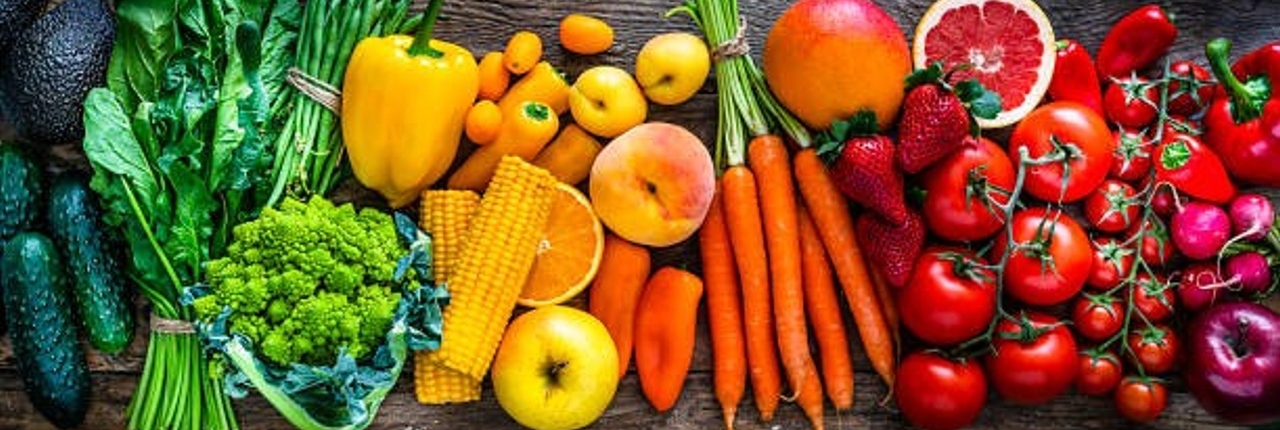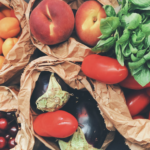We all know we need to eat more fruits and vegetables to be healthy. Most of us have the perception that we eat healthfully, especially in Boulder, Colorado. But are you actually eating 10 servings of fruits and vegetables per day? Probably not.
It turns out that we tend to ignore our bad eating habits. The University of Arizona performed a nation-wide study from 1987 to 1995 called the “Garbage Project” where they compared people’s self-reported food intake to what’s inside their garbage can. These researchers went dumpster diving and actually found that perceived “good behaviors” were over-reported and “bad behaviors” were under-reported by 50% and more. Our trash tells us we are fooling ourselves. We would like to think we eat healthier than what we actually do.
The USDA Dietary Guidelines for Americans 2020-2025 and the American Heart Association recommends eating 10 servings of fruits and vegetables each day. Yes, fruits and vegetables are good for bones, hair and skin, and your heart. They also contain fiber that is especially important for healthy digestion and bowel elimination. Most people are not eating enough fiber in their daily meals. If you struggle with constipation you might want to look at what’s on your plate. If you’re having 3 bowel movements per week–this means you!
Constipation is a symptom, not a disease. The most common type of constipation is called “atonic constipation” is most often due to our western diet and lifestyle. People who eat mostly animal products (meats) and processed carbohydrates, and people who live a sedentary lifestyle, fall into this category. The other type of constipation is called “spastic constipation” which refers to spasms of the colon. This type of constipation is often associated with Irritable Bowel Syndrome.
Food allergy and food intolerances are a fairly common cause of constipation both in children and adults. Constipation can be a result of other conditions including IBS, diverticulosis, colon cancer, laxative abuse, hypothyroidism, diabetes and other neurological conditions. Also certain prescription medications can cause constipation. Regardless of the type of constipation you have, most people with constipation can benefit from improving their diet and lifestyle – increasing fruits and vegetables, regular aerobic exercise and more water. Eat seasonally!
When fruits and vegetables are in season there is a larger supply of those foods and the cost goes down. Produce that is in-season is also picked closer to ripeness and not only tastes better, but has higher nutritional value. The best in-season produce for fall include: beets, bell peppers, broccoli, brussel sprouts, cauliflower, cranberries, garlic, ginger, grapes, green beans, leafy greens, mushrooms, onions, parsnips, pears, peas, potatoes/yams, radishes, raspberries. Be considerate of how much produce you will eat throughout the week as fresh fruits and veggies spoil faster. You can also turn over-ripe produce into juices and drink or freeze them.
Nature Cures for Constipation
- Do a diet diary. Write down what you are eating for a week. You will be surprised at what you actually put into your mouth and body every day.
- Choose 10 servings a day of fruits and vegetables to eat per day. These fiber rich foods should be the mainstay of the diet for anyone with constipation.
- Eat nuts and seeds. They are the next most important food category after fruits and vegetables.
- Eat calmly and slowly.
- Ensure good fluid intake. Drink at least 64 ounces of water per day, and more if you exercise or live in a dry climate like Colorado. When you wake up in the morning drink 1 liter of lemon water. You should be urinating every 2-3 hours during the waking hours.
- Make sure you are exercising regularly.
- Work on your emotional state. If you are anxious or under a lot of stress, focus on improving that aspect of your life.
- Consider the possibility of food sensitivities that might be causing the constipation. You might want to try an elimination rechallenge diet. Avoid gluten, dairy, alcohol and sugar for 4 weeks and then rechallenge them one food group at a time by eating the food with every meal for 1-3 days and seeing if you become more constipated.
- Low stomach acid can be a cause of your constipation. Adding in bitters herbal tincture before meals or betaine HCL may be helpful.
- Consider the possibility of other digestive problems including bacteria overgrowth (SIBO), candida/fungal overgrowth, parasites. A stool analysis can be helpful for detecting these conditions.
- Prune juice (1/2 cup twice per day), flaxseed oil (1-2 TB per day), magnesium oxide (400mg per day) and probiotics can all be extremely helpful for resolving constipation.




